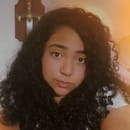Oh, Julia. In high school, you were my breath of fresh air; back when I was younger and was none the wiser while going against the tough tides of 12th grade. I read you then for the first time, when I least expected to need you.
My even younger self had heard about you way back in the catholic elementary school I used to attend. I don’t remember which grade I was in, but I was told the names of illustrious figures of Carolina, Puerto Rico, my hometown and home to many artists, poets, and athletes. Since then, even though you had been briefly mentioned in class discussions, not a single teacher spoke of your poems, not even a fragment of them.
Since childhood, I had been entranced by the fictional worlds hidden in words and film, so it was only natural that I would be drawn to your poetry. Of course, I did not know that then, I believe it was not my time to discover you yet.
Julia de Burgos, A Julia de Burgos
The time to meet you formally came in the form of an act of kindness toward a dear teacher I barely knew. I vaguely remember her warmth and her asking for my help. The details are foggy, but for the Semana de la Puertorriqueñidad (Puerto Rican Heritage Week), she asked me to draw a portrait of you on a big poster board that would be displayed on the door of her classroom for everyone to see. I was the only one working on it and I had never felt more seen in my life.
I have now recognized that it was not my best work, I don’t think I was ever meant to be a painter. However, without knowing the magnitude of your impact, drawing your portrait was the start of my connection with poetry. I remember I was about 13 years old when I wrote a few words from one of your poems. I don’t think I’m meant to remember which one.
I won’t lie to you, I don’t think the teacher was pleased with the painting, but she seemed grateful nonetheless.
After that, I never painted again. Not until this year.
The next time I encountered you would be much later. I had been writing and honing my skills through casual short poems and stories in my mind that never saw even a glimpse of paper.
At 17, in the advanced Spanish class I took during my Senior Year, we had a poetry week. This teacher, who happened to be my worst nightmare and who also sat us in alphabetical order, wanted us to recite and analyze a poem from a poet she would assign to each of us.
I will never know if this was my teacher’s intention—she would always push me the hardest—or if it was fate, but she gave me your name. I remember how everyone was unhappy that I had one of the “easiest” poets to analyze, since I could copy an analysis from the Internet and be done with it. At first, that was my intention, and I would later regret thinking that.
Just like any other student, I left the assignment for the night before. I had a hard time deciding which poem would be the easiest for me to analyze because I had never been good at poetry.
I am saddened by the fact that you are only remembered for your writing when you were much more than that. You were a rebel of your time and a feminist; that is what I got from the poem I chose, that is part of what I had decided to focus on when I presented you to my class.
Julia de Burgos, Yo misma fui mi ruta
When I read “Yo misma fui mi ruta,” my life changed. I had felt reconnected with myself. I felt like I had found a piece of myself I was missing. These were your first words I was truly meant to remember.
When I recited your poem in class, I had hoped I would incite the same passion it had caused me, but I don’t think I was successful. Either way, it meant something to me. After that point, I could finally say I had a favorite poet.
I wish I could say I read other poetry at that point, but, once again, I was never one for it.
However, over the next few years I would find fragments of you everywhere. In the Festival de Claridad that same year, I found a mini booklet with a collection of your poetry. As a broke high school student, I was not able to buy it, but I did reconnect with your words again, as if something did not want me to lose my connection to you.
Over the next few years in university, I encountered you in many different ways. In classes, we would discuss your poetry and your life story. During an escapade from a class last semester, I bought a book based on a reflection of your impact on Puerto Rican literature. While reading the book, I found out you wrote political journalism as a leftist and fought alongside many other nationalists such as Albizu Campos.
A crucial moment I had with the memory of you was for one of my journalistic articles. I had the opportunity to study you more closely in an entirely new context. I visited Galería de los Gigantes in Carolina to learn more about afrodescendencia in my hometown.
There, I saw an animatronic of you recite Rio Grande de Loiza. Even if I got goosebumps listening to it, I knew it would be much better, albeit impossible, if it was your actual voice. There, I felt even more connected with you when I found out you identified as a black woman, which is something I had never considered before, a part of my own identity I still struggle to prove to others and myself. I wonder if you also dealt with the same internal fight.
Thanks to you, I found a new part of myself that I am currently learning to embrace. You have served as a guiding light for me, in my writing and in my life, because you were able to achieve and fight for what you believed in, being an unapologetic black, feminist woman.
I am eternally grateful for your breeze. I am honored to be a descendant of your healing words in ways only we, and few others, would understand.
Most of all, I hope to make you proud. I write not only for me, but for you, for what could have been. Even if you are not here and did not get to show your vivid colors to the world, your passion lives in us.


